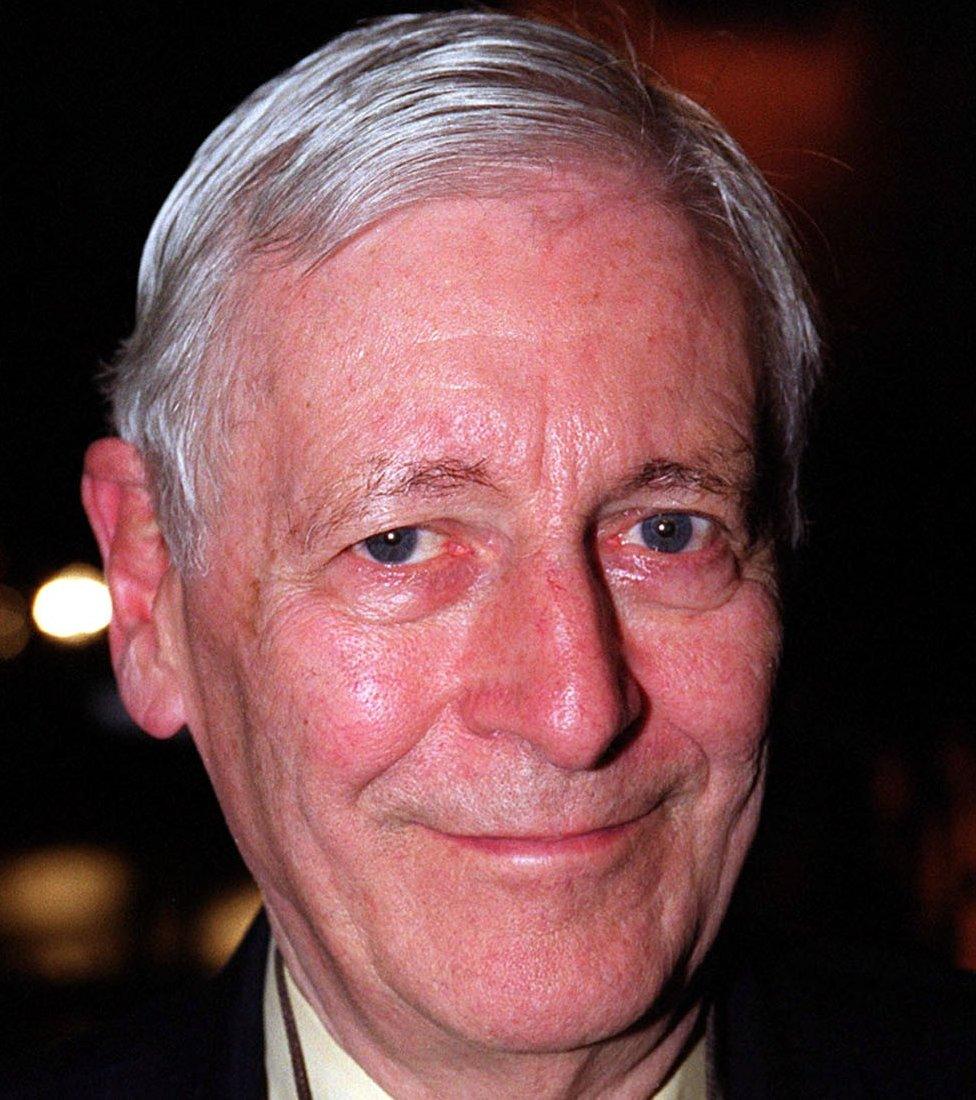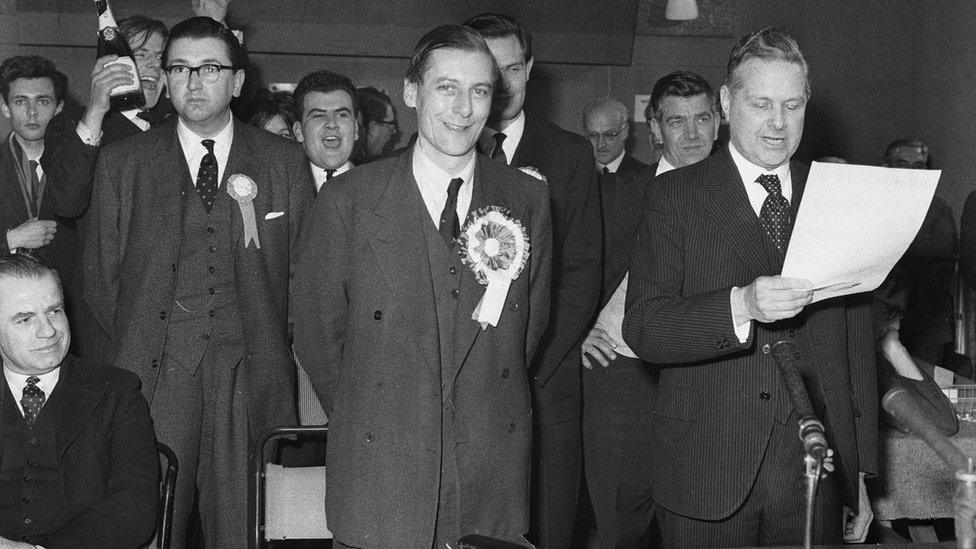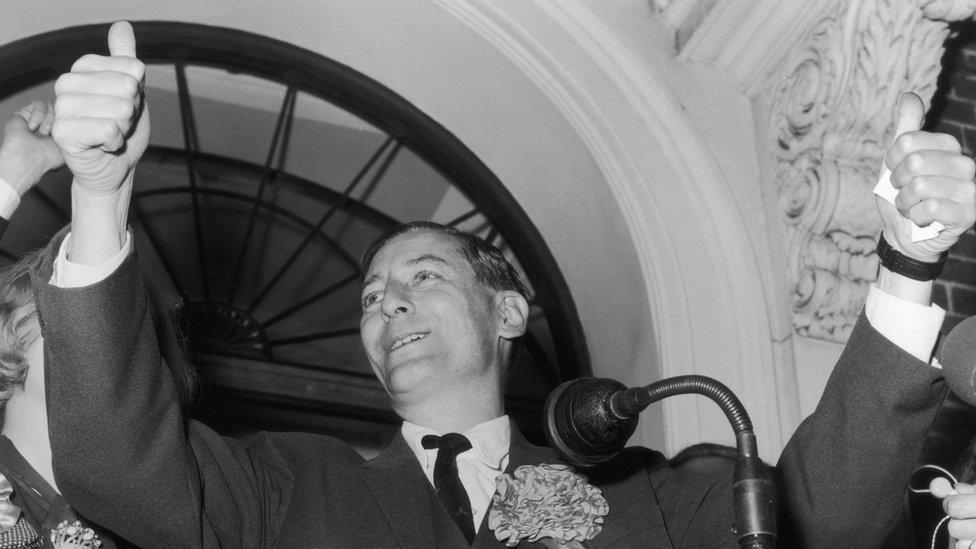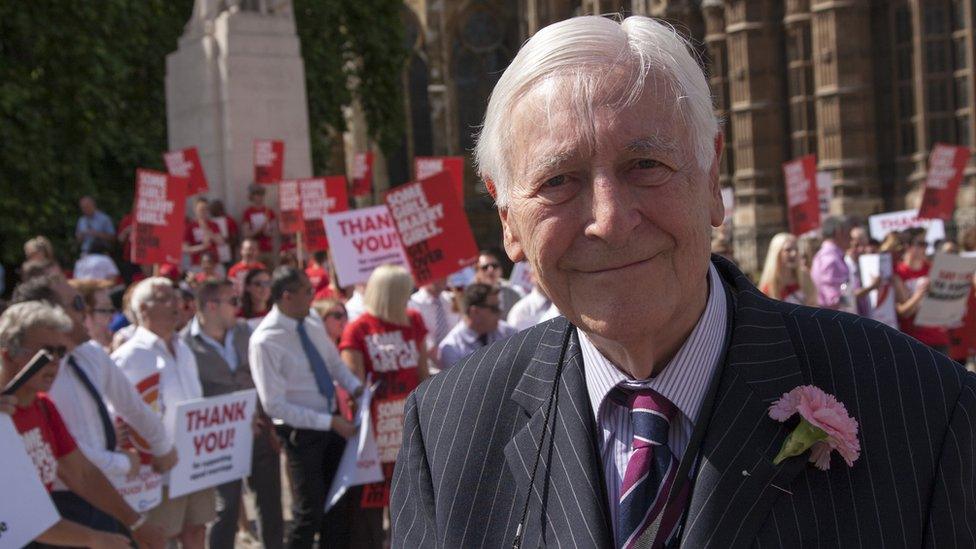Obituary: Lord Avebury
- Published

Eric Lubbock, later Lord Avebury, caused one of the most sensational by-election victories in British political history when he took Orpington for the Liberals in 1962.
The poll was hailed as the beginning of a Liberal revival, and the end of the two party domination of British politics.
In the event it turned out to be no more than a freak result and Liberal hopes were, as would happen so often in the future, doomed to disappointment.
After losing his seat Lubbock continued his political career in the Lords becoming a doughty campaigner for human rights.
Eric Reginald Lubbock was born on 29 September 1928 a grandson of the first Baron Avebury,
He was educated at Harrow and at Balliol College, Oxford, where he took an engineering degree and won a Blue for boxing.

Lubbock overturned a Conservative majority of more than 15,000
Lubbock did his National Service in the Welsh Guards, first as a Guardsman and later as a junior officer before joining Rolls Royce where he worked as an engineer.
He became a Liberal councillor in 1960 and was selected to fight the by-election in what was seen as the safe Conservative seat of Orpington following the appointment of the sitting Conservative MP, Donald Sumner, as a High Court judge.
Lubbock had a mountain to climb. The Conservatives were sitting on a majority of nearly 15,000 and, in the 1959 general election, the Liberals had trailed in third.
But he fought a tenacious campaign highlighting the perceived shortcomings of Harold Macmillan's government. "We must not stop in our efforts to overthrow Tory blunder," he told his enthusiastic supporters.
Tenacity
Cracks began to appear in the Conservative campaign when their candidate Peter Goldman, who came from outside the seat, announced he had no intention of moving to live there if he became the MP.
At the same time the government announced a public-sector pay freeze that badly hit commuter areas like Orpington and impacted most severely on nurses, a move that was deemed highly unpopular.
Despite this, few political analysts predicted anything other than a Conservative win and there was general astonishment when Lubbock overturned the 1959 result - leaving the Conservatives with a deficit of nearly 7,000.

His own success did not spark a Liberal revival
The result helped hasten the end of the Macmillan government and raised hopes within the Liberal Party that were never in fact realised.
During the next eight years, Lubbock earned a reputation in the House of Commons, not only for a conscientious devotion to the interests of his suburban constituents, but also by his tenacity in cases involving civil liberties and his grasp of technological affairs.
For good measure, he also served during most of this period as Liberal Chief Whip.
Expelled
Lubbock held Orpington against fierce Conservative opposition at both the 1964 and 1966 general elections, but was defeated by the Conservative candidate in 1970.
"In 1962 the wise, far-seeing people of Orpington elected me as their Member," he said. "In 1970 the fools threw me out."
A year later he succeeded to the Avebury peerage on the death of his cousin, the third Baron; it seemed likely at first that he would renounce the title so as to contest Orpington again, but after consultation with the Liberal leader Jeremy Thorpe he decided to accept his inheritance.

Lord Averbury remained a campaigner into his ninth decade
Before taking his seat in the House of Lords he visited Ceylon, now Sri Lanka, on behalf of Amnesty International to report on political detentions in the island. The government of Ceylon did not encourage his inquiries and eventually expelled him.
In the Lords he continued to fight for civil liberties, often taking up immigrant cases and speaking out against racism. And, as chairman of the Parliamentary Human Rights Committee, he campaigned for better treatment for prisoners in the UK and abroad.
He became part of the Liberal Democrats Foreign Affairs team in the Lords, cycling to sittings from his home in Camberwell.
Avebury was an enthusiastic supporter of the British Humanist Association and, in 2009, won a National Secular Society award for his part in the abolition of the law on Blasphemous Libel.
He also caused controversy in 2011 when he came out strongly in support of traveller families facing eviction from the Dale Farm site in Essex
In his later years he was diagnosed with a form of blood cancer and became an advocate for assisted dying.
"It is unthinkable that we should not take measures to enable people to alleviate their own suffering," he said.
A convert to Buddhism, he was passionate about recycling and once declared that he intended to leave his body to Battersea Dogs' Home. The offer was gracefully declined.